Alumina Ceramic Foam Filter
Alumina Ceramic Foam Filter is mainly for the filtration of aluminum and alloys in foundries and cast houses. With the excellent resistance to attack and corrosion from molten aluminum, the filter can effectively remove inclusions, reduce trapped gas and provide laminar flow, and then the filtered metal is significantly cleaner. Cleaner metal results in higher-quality castings, less scrap, and fewer inclusion defects, all of which contribute to the bottom-line profit.
● Reduce scrap related to inclusions
● Reduce costs related to inclusion defects
● Increase productivity with higher extrusion or rolling speeds
● Increase casting flexibility with easy alloy changes
● No holding metal
Features:
● Superior dimensional tolerances
● Stable chemical composition
● Highest filtration efficiency
● Excellent strength
● Resistant to corrosion attack by molten aluminum and alloys
● Beveled edges and compressible gasket
Dimensions:
Filters are available in all common sizes:
7x7x2″, 9x9x2″,12x12x2″, 15x15x2″,17x17x2″, 20x20x2″, 23x23x2″.
Other sizes can be customized upon request.
Tolerance:
±2mm(size under 15”)
±3mm mm(size above 17”)
Pore size: 10/20/30/40/50PPI
Pore Tolerance: ± 2PPI
Pre-heating:
Alumina ceramic foam filters are normally applied by placing them into a filter box. It is important to pre-heat both the filter and filter box before use. During pre-heat care must be taken to control both heat-up rate and temperature distribution. This minimizes thermal shock and stresses in the filters and filter box refractory.
Priming:
Before a filter can be used, it must be completely wetted by liquid metal. This happens during the start-up of the casting operation. The amount of metallostatic pressure (or priming head) required to wet filters depends on alloy, metal temperature, pre-heat uniformity, pre-heat temperature, incoming metal quality,pre-filter treatments, and on the cell size of the filter.

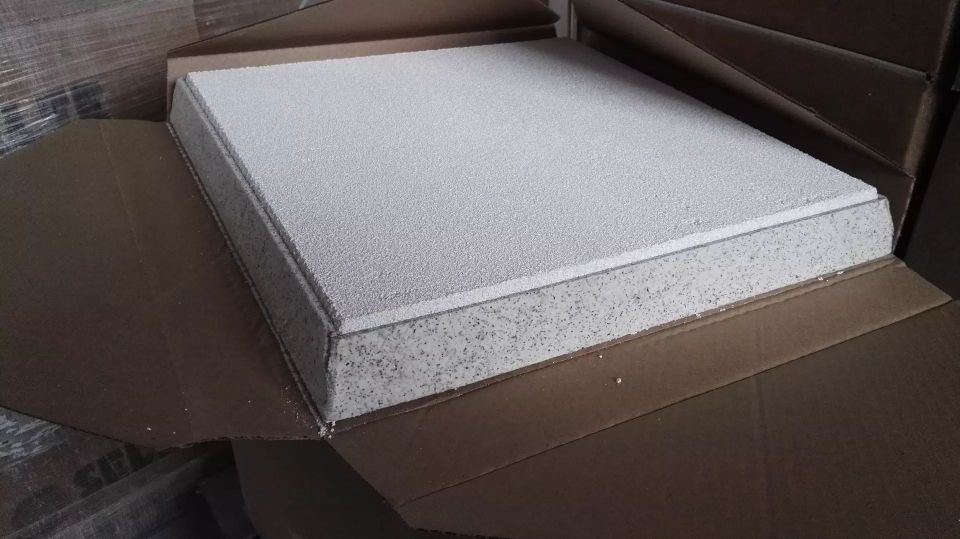
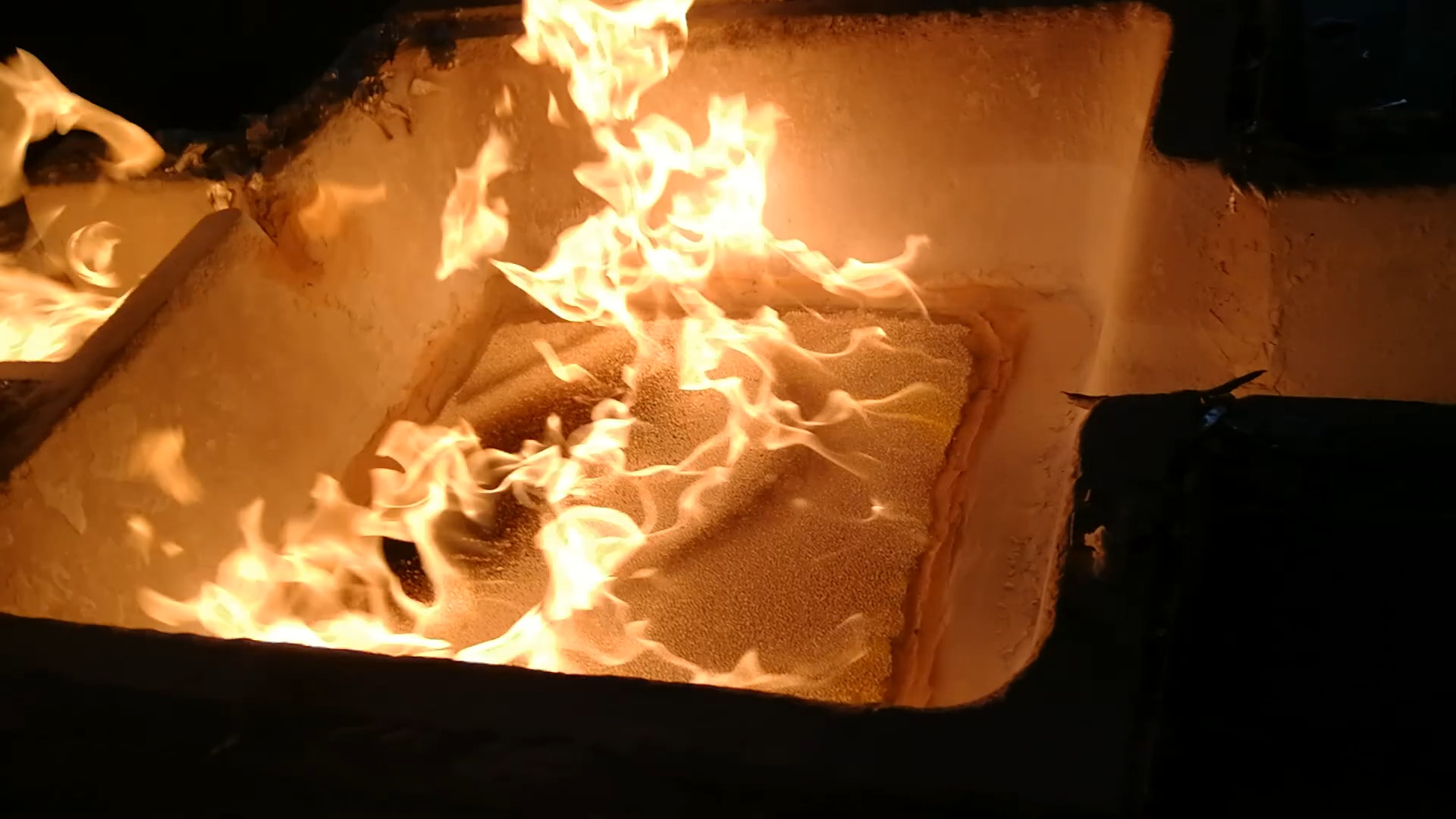
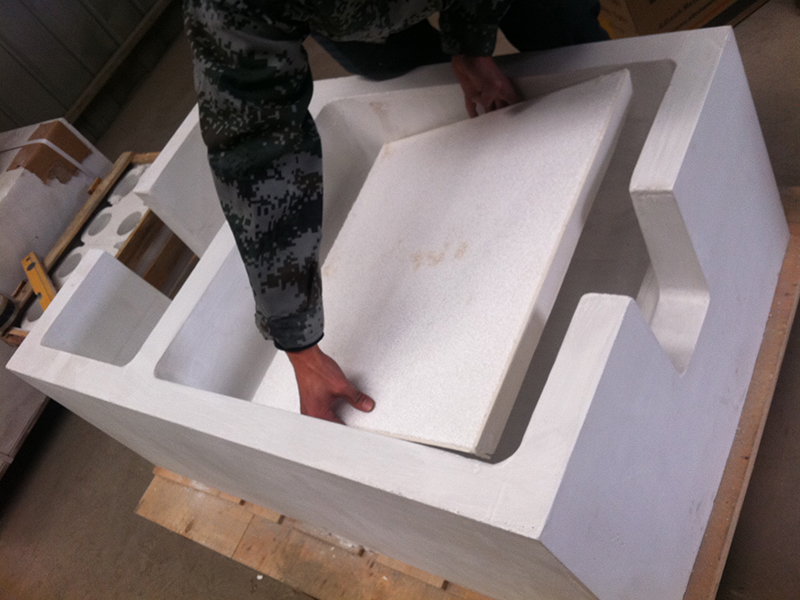
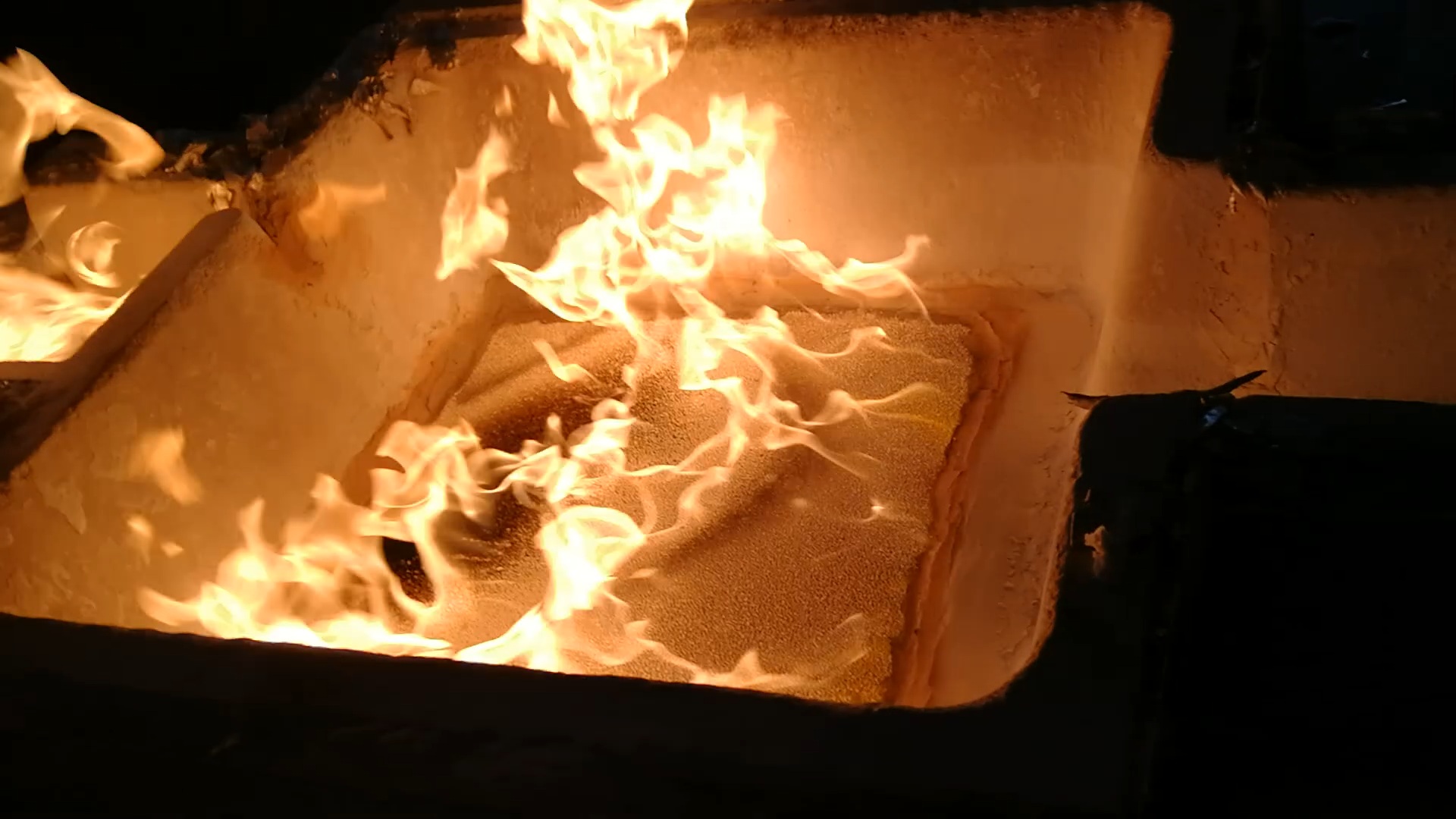
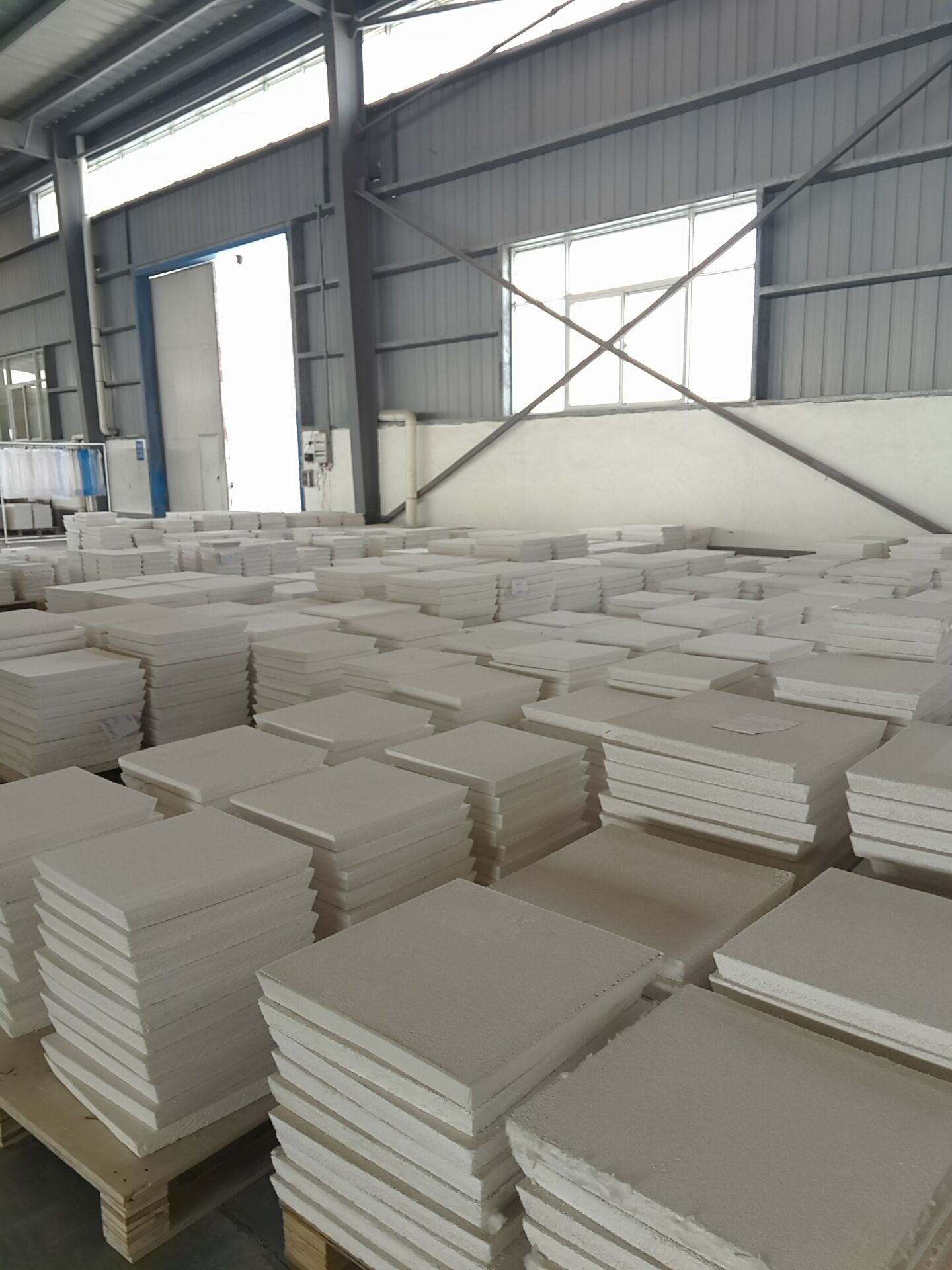


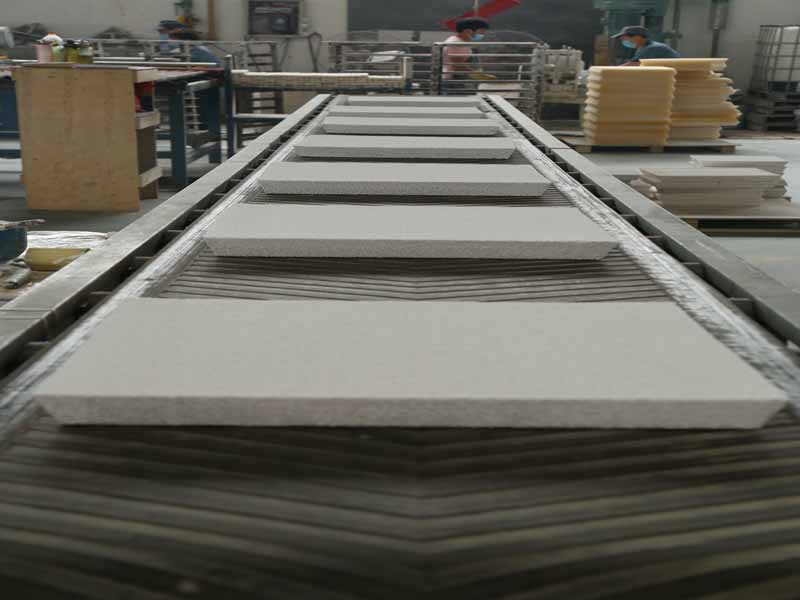
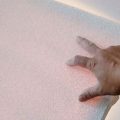
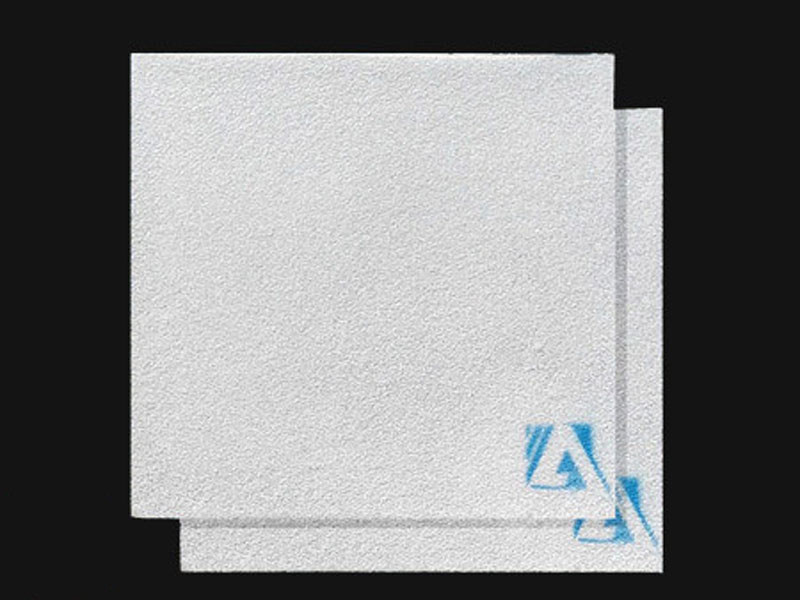
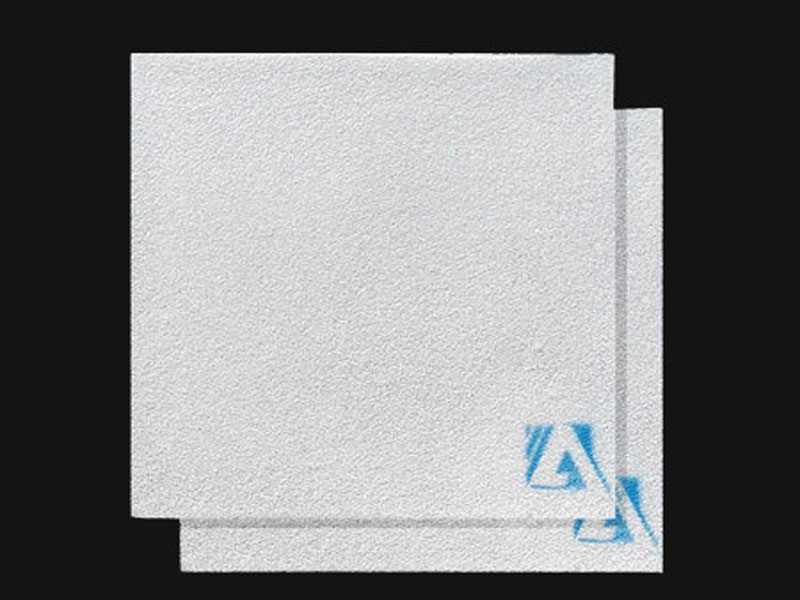
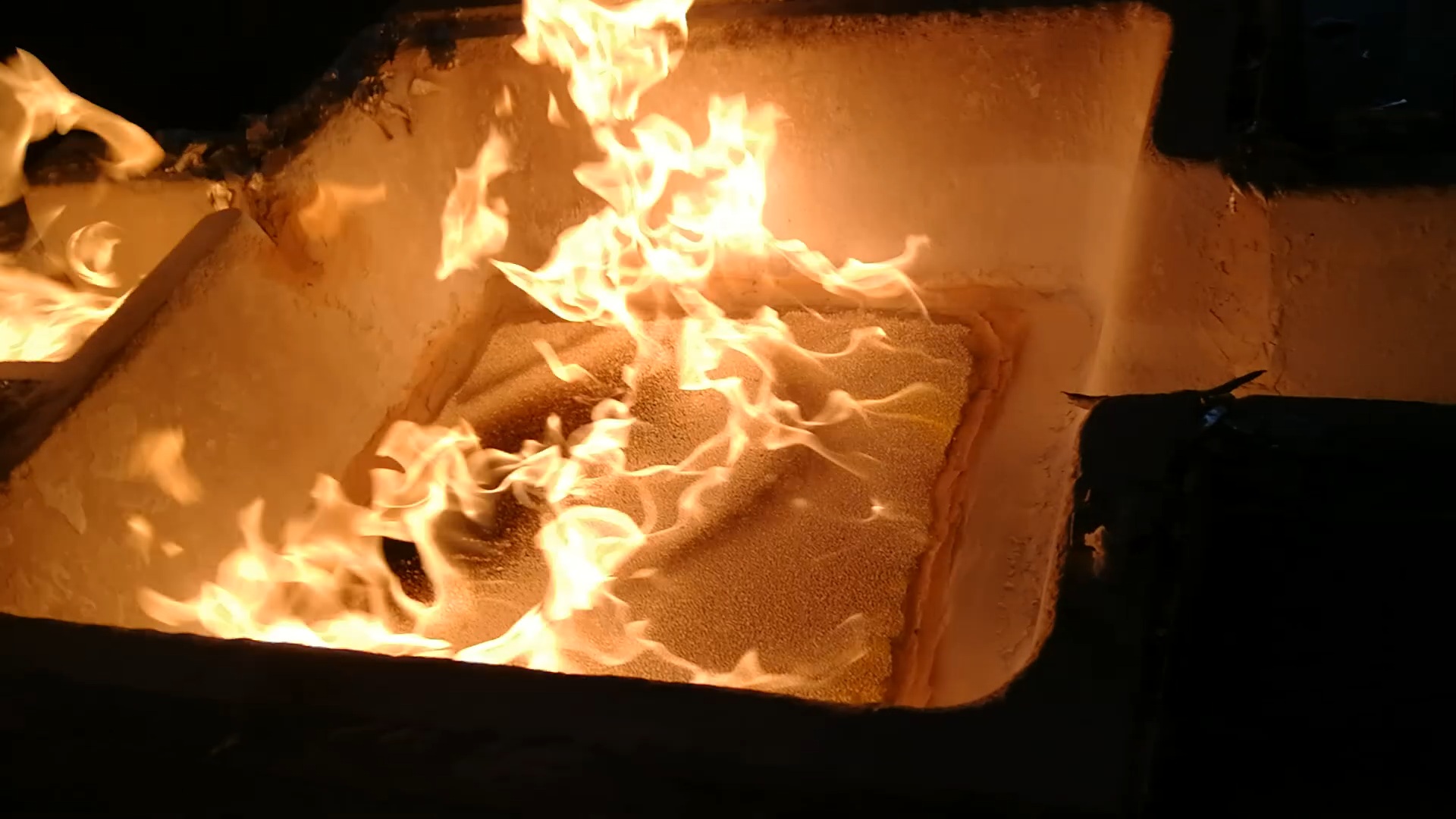
[…] Alumina Ceramic Foam Filter adopts a three-dimensional network structure. It uses organic bubbles connected to the voids as the carrier and is immersed in the thixotropic alumina material slurry. The square-compensated center distance automatic extrusion technology is used to uniformly coat the slurry on the carrier. The foam is formed by firing and curing at a high temperature of 1180°C. […]
[…] line. When in use, the briquette is placed on top of the ceramic foam filter to prevent the alumina ceramic foam filter from floating during the casting and rolling process. The general service life is 3-6 months; the […]